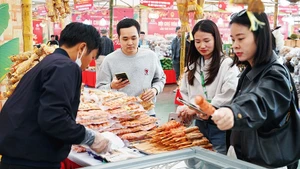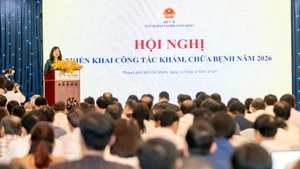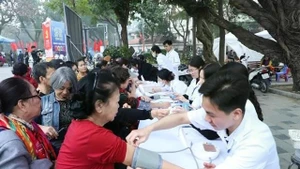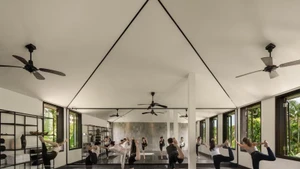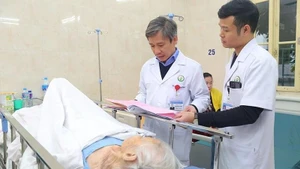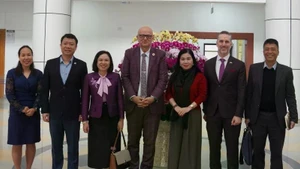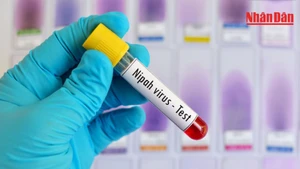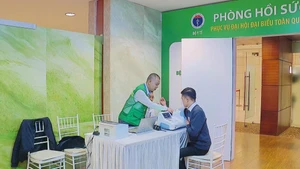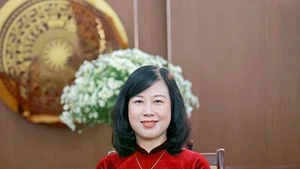In his opening speech, Associate Professor Dr. Tran Van Thanh, Director of the National Hospital of Acupuncture and Vice President of the World Federation of Acupuncture Societies (WFAS), highlighted the importance of strengthening the deep friendship between the two nations in various sectors, including traditional medicine.
He noted that this conference not only fosters academic exchange but also serves as preparation for the upcoming World Acupuncture Congress, in line with the directions of the Vietnamese Government and the Ministry of Health to enhance traditional medicine's role in health care and international integration.
Vietnamese Ambassador to France Dinh Toan Thang emphasised the significance of the conference, noting its timing shortly after the two countries elevated their relationship to a comprehensive strategic partnership.
He referred to high-level visits by Vietnamese and French leaders in 2024 and 2025 as drivers of bilateral relations. He also praised the long-standing medical cooperation between Viet Nam and France, from the founding of the Indochina Medical School in 1902 to the 1993 Medical Cooperation Agreement and the solidarity shown during the COVID-19 pandemic.
He underscored the success of the Viet Nam-France cooperation in acupuncture, where Vietnamese traditional medicine, recognised by UNESCO, has merged with modern French healthcare systems through training courses and workshops since the 1980s.
Speaking to the Viet Nam News Agency, Associate Professor Dr. Vu Nam, Director of the National Hospital of Traditional Medicine, said the conference provides an opportunity to connect scientists, doctors, and healthcare managers from both nations and opened doors for multi-centre research collaboration.
This cooperation allows Vietnamese traditional medicine to spread globally while also benefiting from modern medical advancements to improve domestic treatments. The hospital is the only centre in Viet Nam working with the World Health Organisation on traditional medicine, facilitating the transfer of knowledge and updates to treatment protocols, he added.
Mayor Maxime Marchand of Marseille affirmed the importance of maintaining medical ties between the two countries. He stressed that traditional medicine from Viet Nam and China could complement modern medicine, offering valuable learning opportunities for the French medical community.
Véronique Arnaud Deloy, Mayor of Aix-Provence, acknowledged the complementary role of Vietnamese traditional medicine alongside modern health care, emphasising that this integration is crucial for achieving optimal benefits for patients.
She noted that while acupuncture was once doubted in France, it is now widely recognised for its effectiveness, presenting new possibilities for health care. As someone with Vietnamese heritage, she highlighted that the medical collaboration between the two countries is both professionally important and deeply rooted in culture, and should be expanded across other areas.
Participants discussed new evidence on acupuncture’s safety and effectiveness, sharing clinical experiences, identifying priority research areas, and strengthening training and technology transfer. The research presented confirmed acupuncture’s efficacy in treating conditions such as pain, neurological disorders, migraines, mental health issues, and ADHD.
Following the conference, the Vietnamese doctors treated over 30 patients in France, applying acupuncture and acupressure. Many patients responded positively, expressing interest in continuing treatment with traditional Vietnamese methods.



